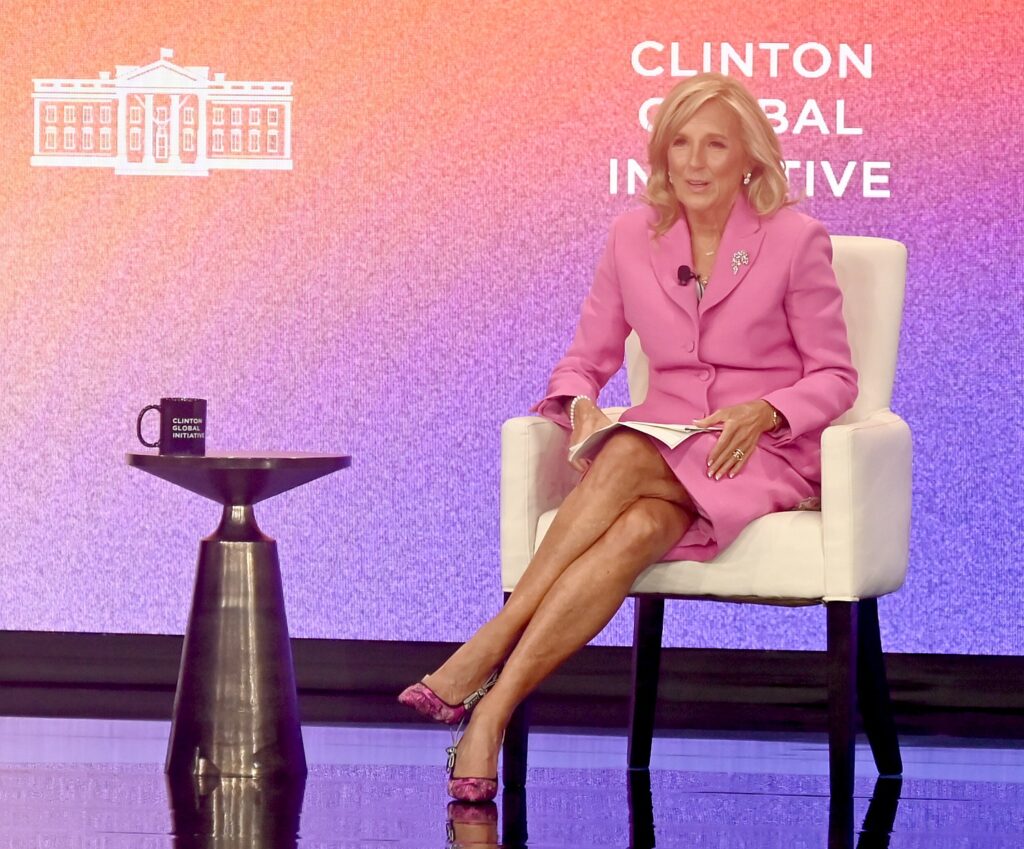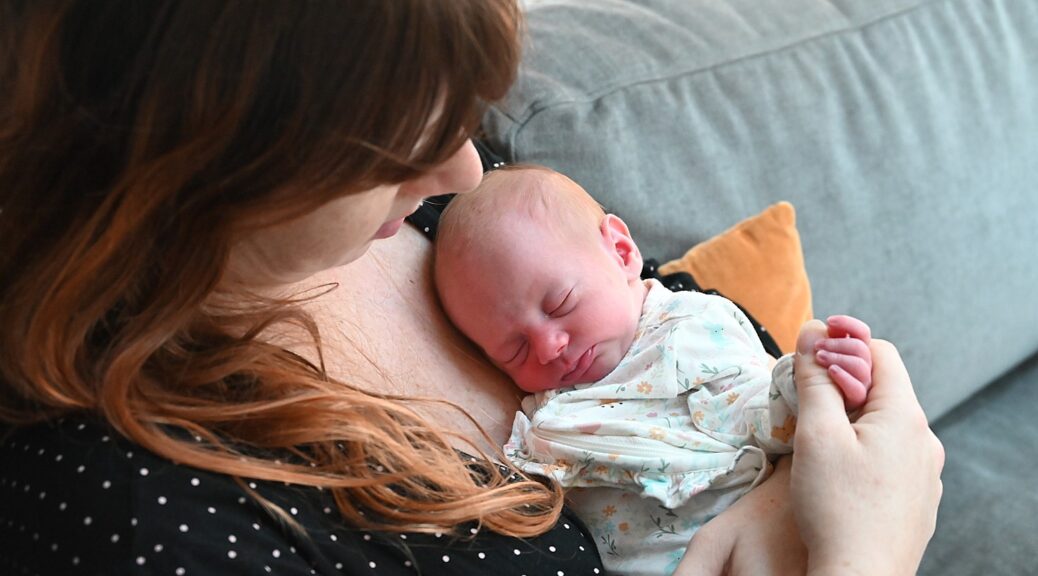
As the Biden-Harris administration institutes new actions to protect women’s access to contraceptives and researchers have just published findings on risk factors for stroke that women – who suffer 57 percent of strokes – face, the administration just announced $110 million in awards from ARPA-H’s “Sprint for Women’s Health” to accelerate new discoveries and innovation. The President and First Lady recognized that medical research largely ignored women, focused almost entirely on men, and established the White House Initiative on Women’s Health Research.
Meanwhile, three states – Missouri, Idaho and Kansas (despite recently approving abortion rights – have revived the lawsuit that the Supreme Court rejected last year, to curb access to abortion medication. Indeed the fact that pregnancy is one of the factors in women’s increased risk of stroke demonstrates why increasing access to contraception and abortion medication is vital, along with the statistics which show spikes in maternal and infant mortality in states that ban abortion and have criminalized pregnancy. The stakes and the contrast in this election – by pro-women’s rights candidate Kamala Harris vs. anti-women’s freedom candidate Donald Trump, could not be more clear. Here is a fact sheet provided by the White House on the latest women’s health initiative. – Karen Rubin/editor@news-photos-features.com, news-photos-features.com
President Biden and First Lady Jill Biden created the White House Initiative on Women’s Health Research to fundamentally change how our nation approaches and funds women’s health research. Despite making up more than half the population, women have historically been understudied and underrepresented in health research. Since its launch in November 2023, the Initiative has made significant investments to close gaps in research on women’s health—from menopause-related conditions to endometriosis to auto-immune conditions to cardiovascular disease—so that we can improve prevention, diagnosis, and treatment of diseases and conditions that affect women uniquely, disproportionately, and differently.
Today in Las Vegas, Nevada, the First Lady will announce $110 million in awards from the Advanced Research Projects Agency for Health (ARPA-H) to accelerate transformative research and development in women’s health. President Biden established ARPA-H, a new research and development funding agency, with bipartisan Congressional support to generate high-impact biomedical and health breakthroughs. In February 2024, the First Lady launched ARPA-H’s Sprint for Women’s Health, the first major deliverable of the White House Initiative on Women’s Health Research. Over the last 10 months, ARPA-H received an unprecedented response to this call for solutions for women’s health, with over 1,700 submissions across 45 states and D.C. as well as 34 countries.
In less than a year, the White House Initiative on Women’s Health Research has galvanized nearly a billion dollars in funding for women’s health research, including the First Lady’s recent announcement of $500 million from the U.S. Department of Defense and $200 million from the National Institutes of Health. Additionally, in his State of the Union address, President Biden called on Congress to make a bold, transformative investment of $12 billion in new funding for women’s health research. President Biden also signed a first-of-its-kind Executive Order on Advancing Women’s Health Research and Innovation, directing the most comprehensive set of executive actions ever taken to expand and improve research on women’s health. Through the Initiative, federal agencies have committed to taking over 100 actions to prioritize investments in women’s health research and integrate women’s health across the federal research portfolio.
Accelerating Progress in Women’s Health Research
Today’s ARPA-H awardees will spur innovation and advance high-impact, novel approaches to diseases and conditions that affect women uniquely, disproportionately, and differently. Today’s awardees are working across a range of women’s health issues—from pursuing new ways to prevent, detect, and treat cardiovascular conditions, ovarian cancer, endometriosis, neurological diseases, and pain in women to developing next-generation approaches to menopause, migraines, obstetrics, and gynecological care.
One-quarter of today’s awardees are pursuing “launchpad” projects, meaning those projects have the potential for commercialization within two years. The remaining awardees are pursuing “spark” projects that are in the early stage of research. ARPA-H’s support for these projects will help ensure that women and their health care providers can soon benefit from the research investments being made today.
The $110 million in ARPA-H awards announced today across 23 teams fund bold and transformative women’s health solutions, including:
- Aspira Women’s Health Inc. of Shelton, Connecticut will receive $10 million to create a first-of-its-kind definitive, non-invasive blood test to diagnose endometriosis. Endometriosis is a debilitating condition that affects about 1 in 10 women and often takes years and surgery to be diagnosed. Aspira Women’s Health Inc. aims to reduce the time it takes to diagnose endometriosis from years to days while helping health care providers identify the most appropriate treatment option for each woman’s needs.
- Beth Israel Deaconess Medical Center, Inc. of Boston, Massachusetts will receive $9.1 million to improve our ability to assess brain disorders in women through a novel non-invasive MRI imaging biomarker. Even though conditions such as Alzheimer’s disease, dementia, and multiple sclerosis disproportionately affect women, there are significant gaps in our knowledge about how to prevent, detect, and treat these conditions in women. By developing a novel and non-invasive MRI technology to measure a specific brain protein, Beth Israel Deaconess Medical Center, Inc. will advance our understanding of, and improve treatments for, brain disorders in women.
- Children’s Research Institute of Washington, DC—through its research arm on families—will receive $8.1 million to develop a novel way to assess chronic pain in women. Women experience pain differently than men which can lead health care providers to underestimate and undertreat this pain, resulting in prolonged suffering, delayed diagnosis and treatment, and a reluctance to seek medical care. Despite this need, there is currently no objective, quantitative indicator of chronic pain in women. Children’s Research Institute aims to fill this gap by studying how a woman’s eyes react to external stimulation, which is directly related to how she perceives pain.
- Gravidas Diagnostics, Inc. of Los Angeles, California will receive $3 million to create a first-of-its-kind at-home test to revolutionize our ability to detect early preeclampsia, a leading cause of maternal mortality and morbidity. By making it easier to identify preeclampsia quickly, Gravidas Diagnostics Inc.’s new low-cost fingerstick test would help women and their doctors get the information they need sooner to reduce pregnancy-related complications and improve maternal and child health.
- The University of Iowa will receive $10 million to revolutionize the treatment for late-stage and metastatic ovarian cancer by using personalized nanoparticles to boost a woman’s immune system. More than half of women with ovarian cancer are diagnosed only after the cancer has metastasized, making it harder to treat and reducing survival rates. Leveraging nanotechnology, the University of Iowa will engineer personalized nanoparticles to use a woman’s own immune system to attack multiple cancers and help more women get the treatment they need to live longer.
- The University of Iowa will receive $10 million to revolutionize the treatment for late-stage and metastatic ovarian cancer by using personalized nanoparticles to boost a woman’s immune system. More than half of women with ovarian cancer are diagnosed only after the cancer has metastasized, making it harder to treat and reducing survival rates. Leveraging nanotechnology, the University of Iowa will engineer personalized nanoparticles to use a woman’s own immune system to attack multiple cancers and help more women get the treatment they need to live longer.
Additional information and a full list of awardees is available here.
See also:
States Revive Lawsuit to Sharply Curb Access to Abortion Pill
To Protect Women’s Freedom, Liberty, Life, Vote for Harris, Democrats and the ERA







